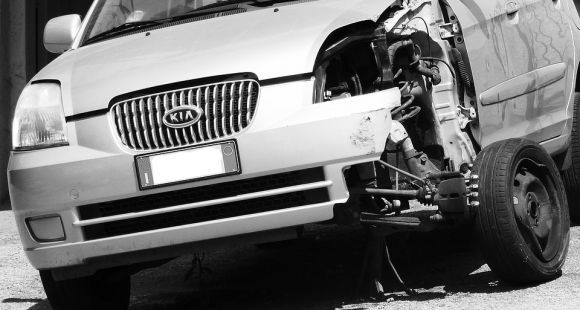In 1960, the Utah Supreme Court recognized a defense known as the “sudden incapacity defense.” See Porter v. Price, 355 P.2d 66, 67 (Utah 1960), overruled in part on other grounds by Randle v. Allen, 862 P.2d 1329 (Utah 1993).
The case of Porter v. Price arose when Price suffered a severe insulin reaction while driving, which caused him to lose control of his automobile and to crash into Porter’s automobile. The Utah Supreme Court explained that, under the sudden incapacity defense, a person driving an automobile who is suddenly stricken by an illness making it impossible to control the car is not liable for such an event, so long as the driver had no reason to anticipate the sudden illness. Consequently, Porter could not recover any damages from Price for his injuries.
Later, Utah’s legislature enacted Utah Code Ann. § 31A-22-303(1), which: (A) requires motor vehicle liability insurance policies to cover damages resulting from a covered driver of a motor vehicle who suddenly and unforeseeably becomes incapacitated; and (B) states that the insured driver’s liability for such an event is limited to the amount of insurance coverage available under the driver's liability policy.
In Lancer Ins. Co. v. Lake Shore Motor Coach Lines, Inc., 2017 UT 8, 391 P.3d 218 reh'g denied (Mar. 29, 2017), the Utah Supreme Court analyzed the impact of § 31A-22-303(1) on the sudden incapacity defense.
Lancer arose out of an October 10, 2009 bus accident. While driving back to Utah from a high school band competition in Idaho, a bus driver experienced a sudden and unforeseeable loss of consciousness. The driver’s sudden loss of consciousness caused the bus to leave the roadway, hit a ravine, and roll over, which injured several passengers.
The insurance company for the bus’ owner claimed that, as in Porter v. Price, the parties injured could not recover because the driver that caused the crash qualified for the sudden incapacity defense. Conversely, the injured parties claimed that § 31A-22-303(1) repudiated the sudden incapacity defense by expressly requiring insurance policies to cover such situations.
The Utah Supreme Court ultimately agreed with the analysis offered by the injured parties. The court explained that, if the sudden incapacity defense still applied, then § 31A-22-303(1) would require insurance coverage for damages that could never be awarded. In other words, if a suddenly incapacitated driver is not liable for damages, then there is no reason for insurance policies to include coverage for that circumstance. Because the court assumed the legislature would not enact a meaningless law, the court determined the legislature must have intended to remove the sudden incapacity defense when it enacted § 31A-22-303(1). Therefore, the injured parties could recover up to the full amount of insurance coverage available under the insurance policy covering the bus driver, notwithstanding the fact that the bus driver was suddenly and unforeseeably incapacitated.
But the court expressly limited its holding to situations where a suddenly incapacitated driver had automobile insurance as contemplated by § 31A-22-303(1). Whether the sudden incapacity defense would be applicable to an uninsured driver is still an open question.

